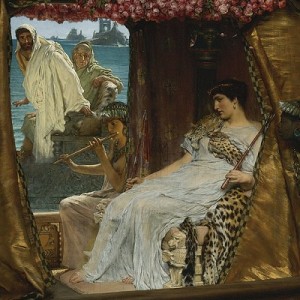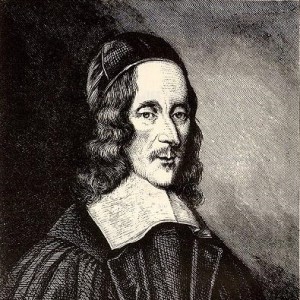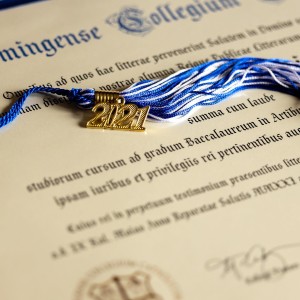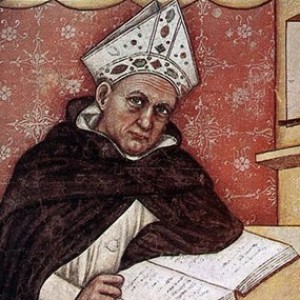Episodes

Tuesday Jul 27, 2021
Shakespeare's Rome: Politics and Eros by Dr. Tiffany Schubert
Tuesday Jul 27, 2021
Tuesday Jul 27, 2021
As Aeneus becomes increasingly comfortable building Carthage with Queen Dido, the god Mercury appears to him. “You, so now you lay foundation stones for the soaring walls of Carthage! Building her gorgeous city, doting on your wife. Blind to your own realm, oblivious to your fate!” Aeneus is supposed to be headed for Italy to build Rome. Carthago delenda est--Carthage must be destroyed.
The final presentation at The Wyoming School of Catholic Thought this past June focused on the story of Aeneas and Dido from Virgil’s Aeneid, the great founding myth of Rome. The parallel with Antony and Cleopatra is obvious and was probably intended.
But there’s a most important difference: where Antony stayed in Egypt forsaking Rome, Aeneas fled Carthage for the sake of Rome.
At the Wyoming School of Catholic Thought, Dr. Tiffany Schubert offered this presentation about the two couples and the relationship of politics and eros.

Tuesday Jul 20, 2021
Shakespeare's "Antony and Cleopatra" by Dr. Adam Cooper
Tuesday Jul 20, 2021
Tuesday Jul 20, 2021
The story of King David’s tryst with Bathsheba begins with these ominous words, “In the spring of the year, the time when kings go forth to battle, David sent Joab, and his servants with him, and all Israel…. But David remained at Jerusalem.” (2 Samuel 11:1).
Just as David remained in Jerusalem “when kings go forth to battle,” the great Roman general, Mark Antony, remained in Egypt, captivated by Queen Cleopatra. “Let Rome in Tiber melt, and the wide arch/Of the ranged empire fall! Here is my space,” he tells her.
The result as Shakespeare explains in the title of the play is “The Tragedy of Antony and Cleopatra.”
At the Wyoming School of Catholic Thought in June, Wyoming Catholic College professor Dr. Adam Cooper introduced Shakespeare’s play and its themes.

Tuesday Jul 13, 2021
Shakespeare's "Julius Caesar" and Ceasarism by Dr. Pavlos Papadopoulos
Tuesday Jul 13, 2021
Tuesday Jul 13, 2021
“Let me have men about me that are fat;
“Sleek-headed men and such as sleep o' nights:
Yond Cassius has a lean and hungry look;
He thinks too much: such men are dangerous.”
So said Julius Caesar to Mark Antony in Shakespeare's "Tragedy of Julius Caesar." Cassius was indeed dangerous as Caesar discovered on the Ides of March when a group of Senators led by Cassius stabed him to death.
They, for their part, believed their action represented the height of patriotism. Caesar would be king—an abomination in the Roman Republic. “Liberty! Freedom! Tyranny is dead!” they shouted as Caesar’s blood dripped from their knives and hands.
Were Cassius, Brutus, and the rest patriots or treasonous monsters? Dante put Cassius and Brutus in the frozen bottom of Hell endlessly chewed by Satan chews along with Judas Iscariot. What was Shakespeare’s judgment on these men and their plot? And how should we look at the conspirators and their attempt to defend the republic from what they perceived as tyranny?
At the Wyoming School of Catholic Thought, the college’s adult learning week, in June, most of those conversations took place in seminar sessions, but Dr. Pavlos Papadopoulos started the discussion with this introduction.

Tuesday Jul 06, 2021
Shakespeare's Rome: "Coriolanus" and the Republic by Dr. Virginia Arbery
Tuesday Jul 06, 2021
Tuesday Jul 06, 2021
You common cry of curs! whose breath I hate
As reek o' the rotten fens, whose loves I prize
As the dead carcasses of unburied men
That do corrupt my air, I banish you;
And here remain with your uncertainty!
Let every feeble rumour shake your hearts!
The quote is from William Shakespeare’s tragedy “Coriolanus.” Coriolanus was a great war hero during the fifth century BC, the early years of the Roman Republic. After returning from a great victory, the Roman Senate would make him a consul—the highest office in the city. But the common people of Rome egged on by their leaders, the tribunes, believe him too proud and vote instead to banish him from the city. In anger Coriolanus cries, “I banish you,” leaves the city, and joins ranks with the enemy to revenge the insult by conquering Rome.
“Coriolanus” was the first of three plays we considered in June at the Wyoming School of Catholic Thought as we considered “’Shakespeare’s Rome.” Before we divided into seminar groups, Dr. Virginia Arbery delivered this introduction to the play, to the Roman Republic, and to questions concerning our own republic.

Tuesday Jun 29, 2021
Shakespeare's Rome: An Introduction by Dr. Glenn Arbery
Tuesday Jun 29, 2021
Tuesday Jun 29, 2021
From June 6-11, a group of forty adult students gathered in Lander for The Wyoming School of Catholic Thought. Our topic was “Shakespeare’s Rome” which we then related to Shakespeare’s England—he lived during Queen Elizabeth I’s reign—and to our America.
While we can’t bring you the interaction we all enjoyed during seminars, which accounted for most of our time together, this and the following four podcasts feature the introductory remarks of our faculty to the plays “Coriolanus,” “Julius Caesar,” and “Antony and Cleopatra” and the story of Aeneus and Dido from Virgil’s Aeneid.
Dr. Glenn Arbery, our college president, delivered this lecture to introduce the week’s topic.
If you’d like to “brush up your Shakespeare” as Cole Porter famously put it, read Shakespeare’s tragedy, “Coriolanus” in anticipation of next week’s podcast by Dr. Virginia Arbery.

Tuesday Jun 22, 2021
"As Kingfishers Catch Fire" with Dr. Pavlos Papadopoulos
Tuesday Jun 22, 2021
Tuesday Jun 22, 2021
As kingfishers catch fire, dragonflies draw flame;
As tumbled over rim in roundy wells
Stones ring;
Gerard Manley Hopkin’s sonnet, “As Kingfishers Catch Fire,” has become one of the poems Wyoming Catholic College graduates memorized over the course of four years. And it’s the one our seniors, as a class, recited during their weekend of graduation festivities. The recitation was led by Dr. Pavlos Papadopoulos who has a great personal love for this challenging poem.

Tuesday Jun 15, 2021
George Herbert's "Love (III)" with Dr. Tiffany Schubert
Tuesday Jun 15, 2021
Tuesday Jun 15, 2021
“Love bade me welcome: yet my soul drew back,” begins George Herbert’s poem “Love (III).” It’s one of the 26 poems students at Wyoming Catholic College memorize over their four years and one of the most beloved.
George Herbert, an Anglican clergyman, lived a mere 39 years, from 1593 to 1633. Yet the great Puritan pastor and theologian, Richard Baxter said of him, “Herbert speaks to God like one that really believeth in God, and whose business in the world is most with God. Heart-work and heaven-work make up his books.”
Dr. Tiffany Schubert taught the poem this year and began this interview by telling us something about poet George Herbert.

Tuesday Jun 08, 2021
President's Address to the Class of 2021 by Dr. Glenn Arbery
Tuesday Jun 08, 2021
Tuesday Jun 08, 2021
Each year on the evening before commencement, it falls on the president of Wyoming Catholic College to host the President’s Dinner and to address not only the graduates, but their parents, siblings, grandparents, and friends.
The Wyoming Catholic College class of 2021’s junior and senior years were, of course, marked by pandemic, panic, and social distance. Theirs was an unusual college career.
Yet, as college president, Dr. Glenn Arbery, noted in his address at the President’s Dinner, it was a class that nonetheless excelled in every way.
Here are Dr. Arbery’s remarks in their entirety.
Note: Please excuse the fidelity of the speech. It is not as good as we had hoped. Dr. Arbery's words, however, will more than make up for any inconvenience.

Tuesday Jun 01, 2021
Student Commencement Address by Mr. Anthony Jones
Tuesday Jun 01, 2021
Tuesday Jun 01, 2021
Each year our Wyoming Catholic College graduating class selects one of its members to speak on its behalf during the commencement exercises. This year, the Class of 2021 chose Mr. Anthony Jones as their spokesman.
In addition to graduating Magna Cum Laude—posting the second highest grade point average in his class—Anthony founded Cowboys for Life, the college’s pro-life group and organized the first pro-life march in Lander. He was active in Wyoming politics, serve as summer intern at Family Research Counsel and The Heritage Foundation in Washington, DC, and traveled to Ireland one summer to fight the legalization of abortion in Ireland.
After graduation and two weeks in the backcountry with classmates, Anthony will be moving to Austin, Texas to work at the Texas Policy Foundation before attending graduate school in public policy.
Here are Anthony’s remarks in their entirety.

Tuesday May 25, 2021
Faith and Reason in Benedict XVI's The Regensburg Address with Dr. Michael Bolin
Tuesday May 25, 2021
Tuesday May 25, 2021
When he delivered his “Regensburg Address” in 2006, Pope Benedict XVI set off a firestorm of anger. Not only had he criticized Islam and modern scientism, he had the temerity to suggest that what the world really needs is Catholicism. Nearly fifteen years later, sound far less profligate and far more prophetic.
Of course, the Regensburg Address was not primarily about Islam or about scientism. Pope Benedict argued for the place of reason in human life. Without it, we either end up with subjective religiosity ungoverned by reason and leading toward fanaticism or we limit reason to mathematics and physics leading to a cold, calculated science that erases religion and morality and with them our humanity.
Dr. Michael Bolin read Pope Benedict’s Regensburg Address with our Wyoming Catholic College seniors in the weeks before graduation.

